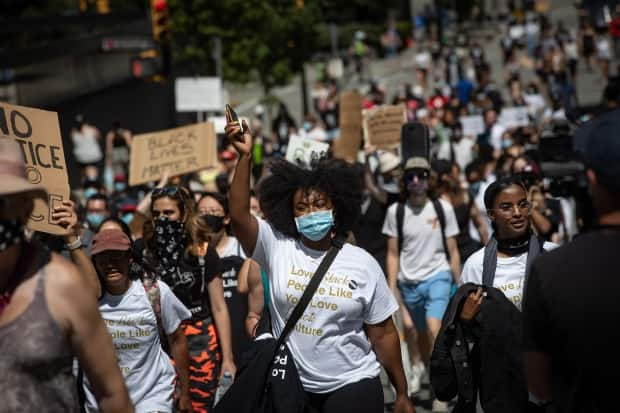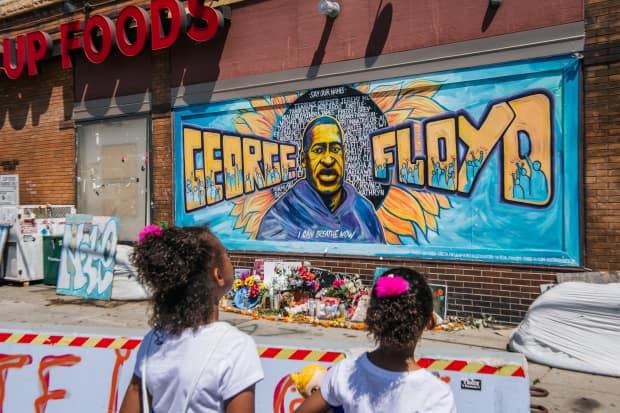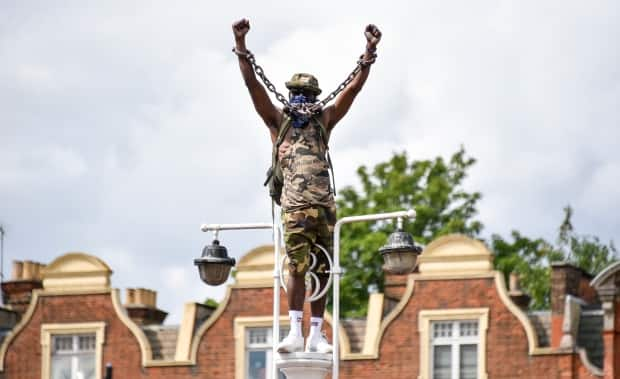Emancipation Day exposes Canada's educational blind spot

This column is an opinion from Sarah Raughley, an academic, public writer and novelist. She is an assistant professor of writing at Lakehead University in Orillia, Ont. For more information about CBC's Opinion section, please see the FAQ.
This year saw huge advancements in raising public awareness about Black history.
Juneteenth — representing the day in 1865 that enslaved Black people in Texas learned that they were free, and thus celebrated as the effective end of slavery in America — became recognized as an American federal holiday on June 17.
Meanwhile, here in Canada, on March 24, the House of Commons officially recognized Aug. 1 as Emancipation Day to celebrate the end of slavery across the colonies of the British Empire, dating back to 1834. (Some jurisdictions in what is now Canada passed abolitionist measures years earlier.)
Did you know that? If your answer is no, you likely aren't the only one. For history to be learned, it must be taught.
Before the killing of George Floyd by a Minneapolis police officer in 2020 dragged the Black Lives Matter movement firmly into mainstream consciousness, few people knew about Juneteenth — even though it has been long celebrated by African Americans.
Likewise, most Canadians are unaware of their country's history of slavery. And this is largely owed to the reluctance of schools to teach this history.

Many Canadians likely learned about the Underground Railroad in grade school: the elaborate network of routes established in the early- to mid-1800s that brought enslaved Africans seeking freedom north to America's northern free states and to British North America (now Canada). But the same Canadians likely did not learn that owning slaves — both Black and Indigenous — was once legal and common in this land now known as Canada.
Yes, the same Canada commonly depicted as a land of freedom for escaped African Americans.
This educational blind spot is an example of the kind of erasure that is very much baked into the Canadian cultural milieu. Canada has made multiculturalism and racial harmony key to its international representation as a country, along with the notion that despite someone's culture, no citizen is anything other than Canadian.
Within this ideological framework, culture becomes a matter of individualism; a possession one has, completely disconnected from political power, sovereignty and hierarchy.
Official multiculturalism asks us not to ask why some Canadians are simply Canadian, while others are Black Canadians, Asian Canadians or are similarly hyphenated.
It asks us not to think too deeply about the fact that Pierre Trudeau's multiculturalism policy of the '70s entrenched two white colonial languages — French and English — as official, while implicitly subordinating all ethnicities to a Canadian English core.
Most insidiously, it asks us not to consider the link between the mythologizing of Canada as a multicultural bastion of freedom and the country's erasure of its violent colonial past.

Maintaining the fantasy of Canada has long been prioritized by the mainstream over acknowledging the country's fraught history with race and fixing its systemic social issues. Moreover, it's so much easier to ignore present injustices against racialized Canadians when no one knows the true historical context behind how this injustice came to be.
As Robyn Maynard writes in Policing Black Lives: State Violence in Canada from Slavery to the Present, "a generalized erasure of the Black experience in Canada from the public realm, including primary, secondary and post-secondary education, combined with a Canadian proclivity for ignoring racial disparities, continues to affect mainstream perception of Black realities throughout the nation."
That is to say that the lack of knowledge of Black history has led to a lack of empathy toward the issues Black communities face.
Canadian educator Nadia L. Hohn taught kindergarten at Toronto's Africentric Alternative School. In her estimation, there's no reason why education about Canada's history with slavery should not start early.
"I think it should start at the elementary school level," she said. "And there are different ways to teach about it. There are lots of resources. The Ontario Black History Society is a great start and there are great picture books."
In the U.S., the recent right-wing attacks on critical race studies — which seek to reframe the narrative of history and acknowledge that racism has shaped public policy — are proof that education can challenge systems of power. The truthful telling of history can dismantle the hierarchical status quo.
Emancipation Day and the creation of other federal holidays that recognize Black suffering is an important step toward equality — but only if accompanied with a genuine will to pair recognition with action and justice.
This column is part of CBC's Opinion section. For more information about this section, please read our FAQ.
For more stories about the experiences of Black Canadians — from anti-Black racism to success stories within the Black community — check out Being Black in Canada, a CBC project Black Canadians can be proud of. You can read more stories here.


